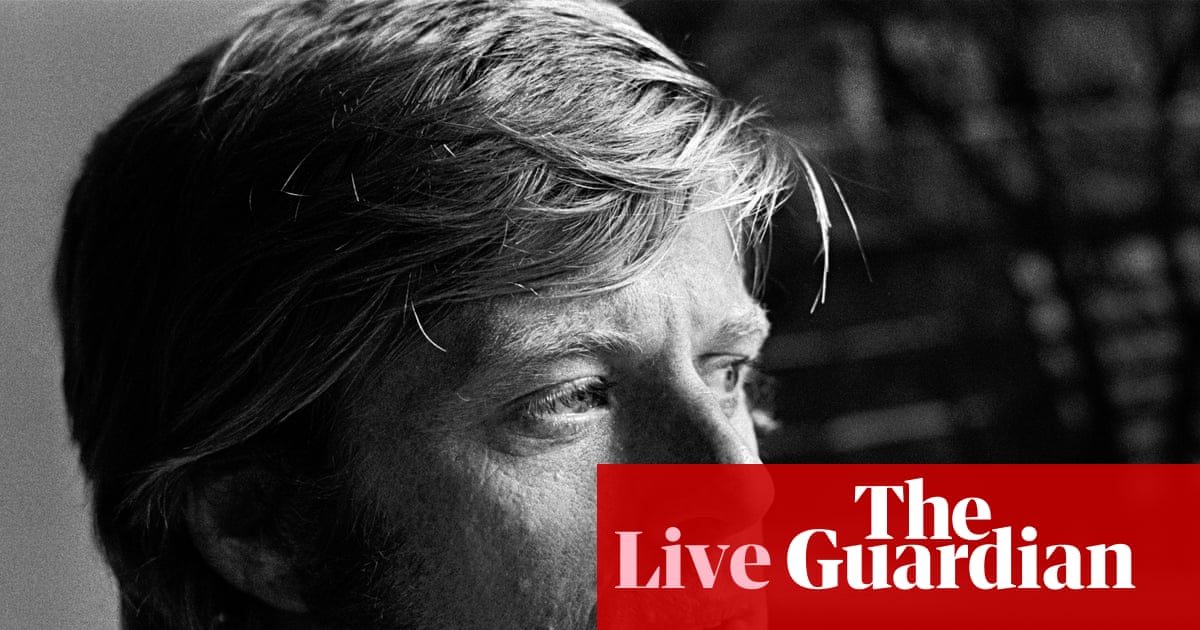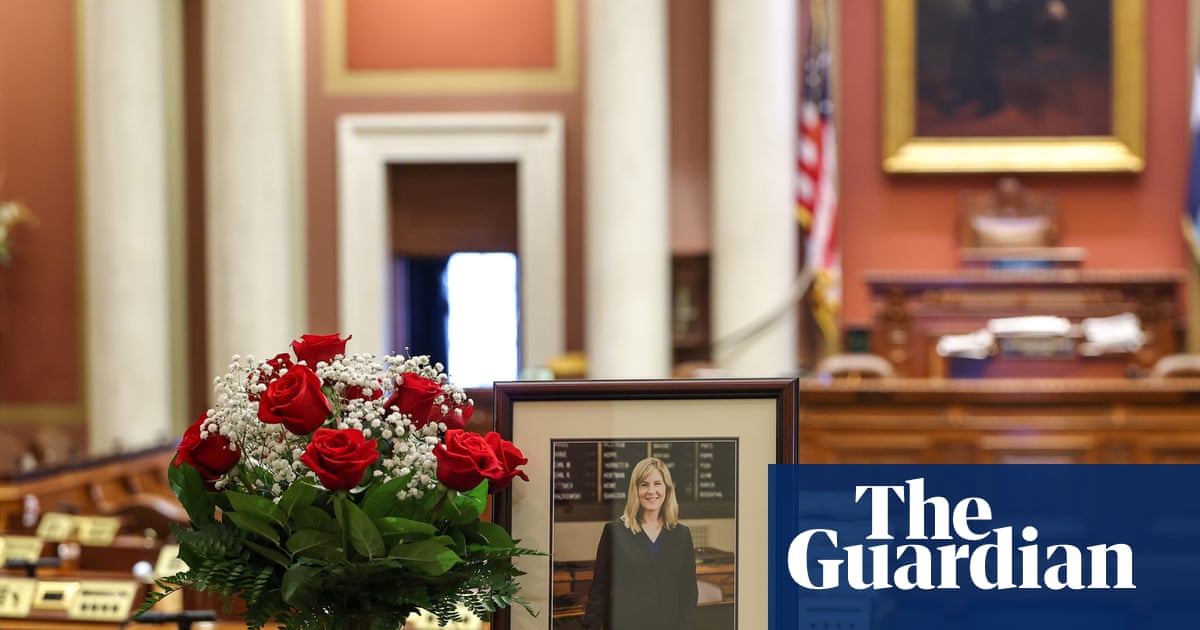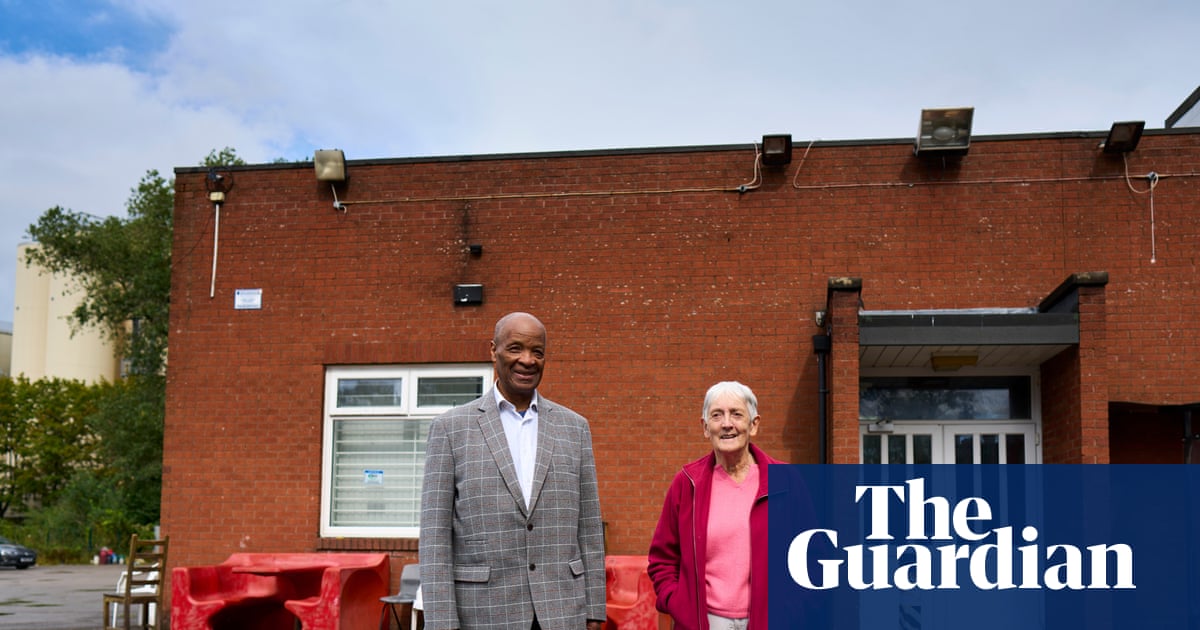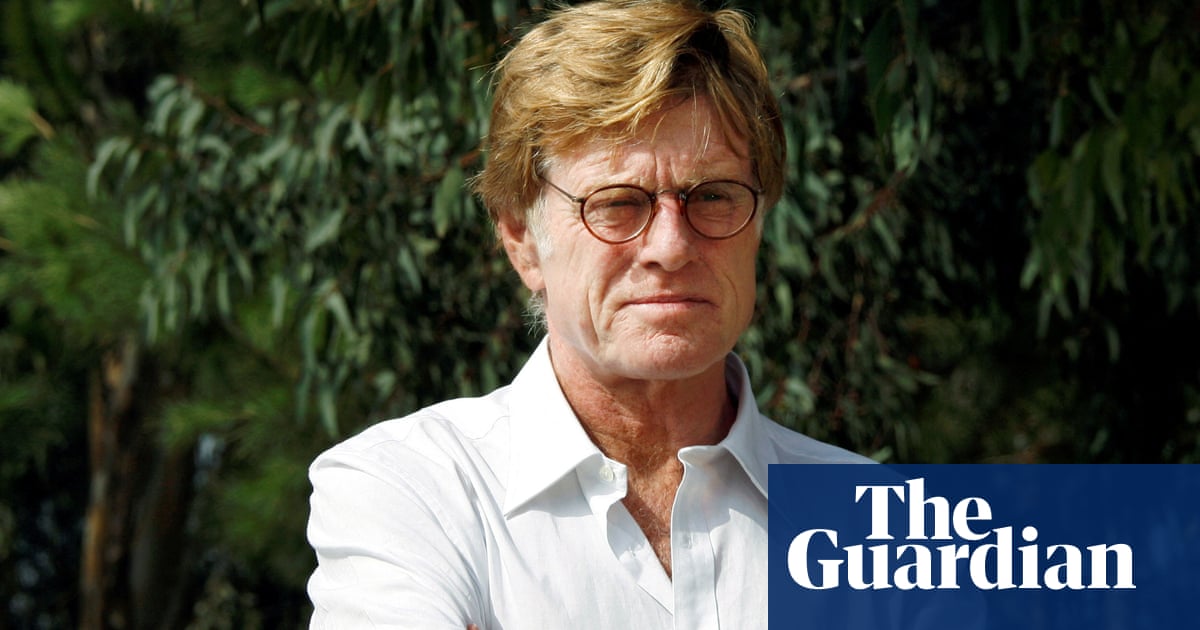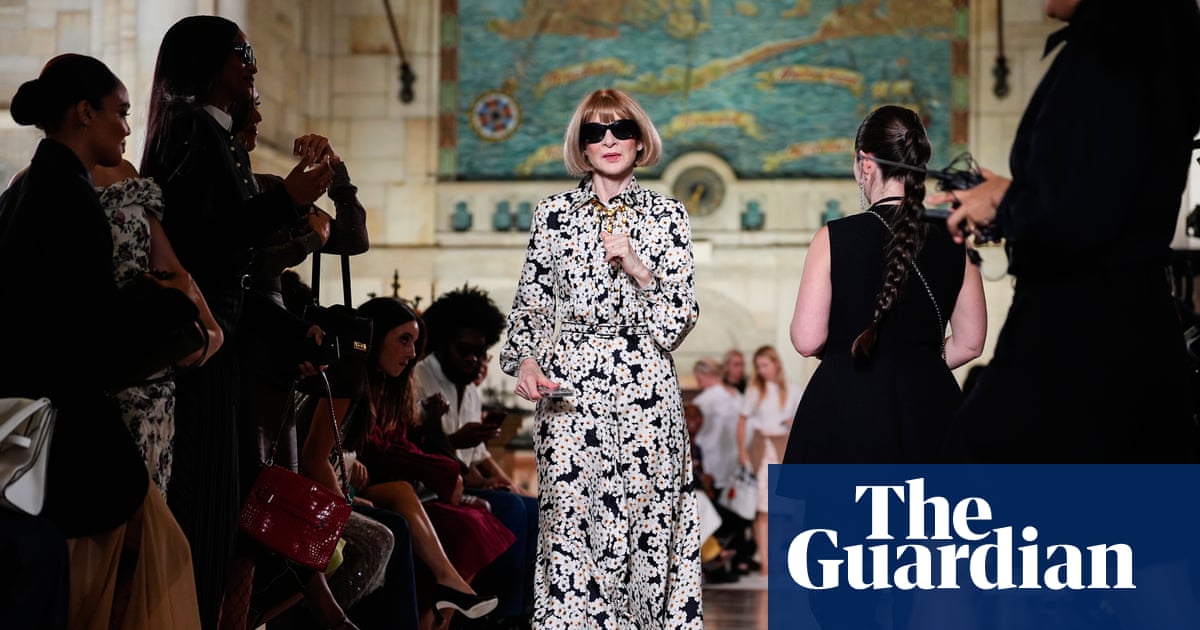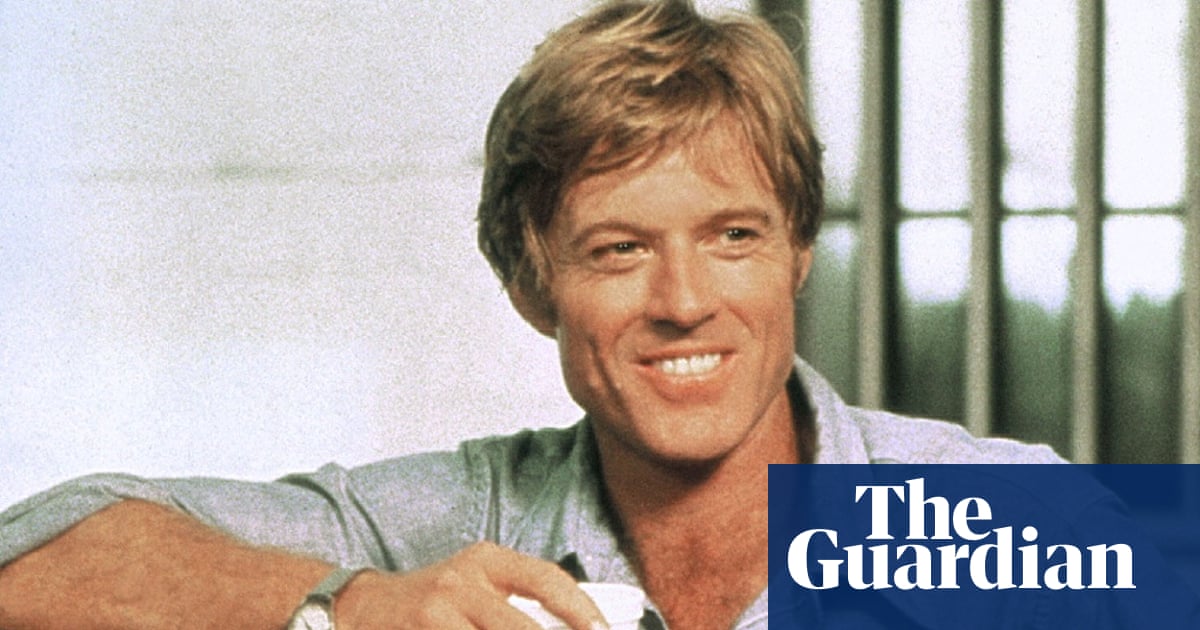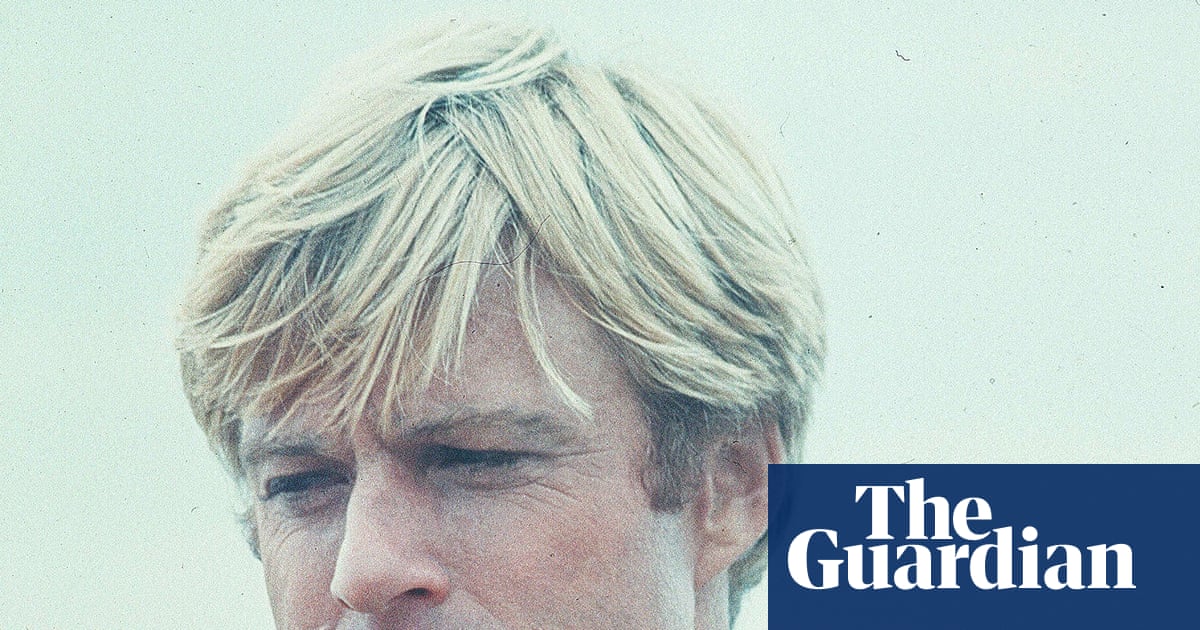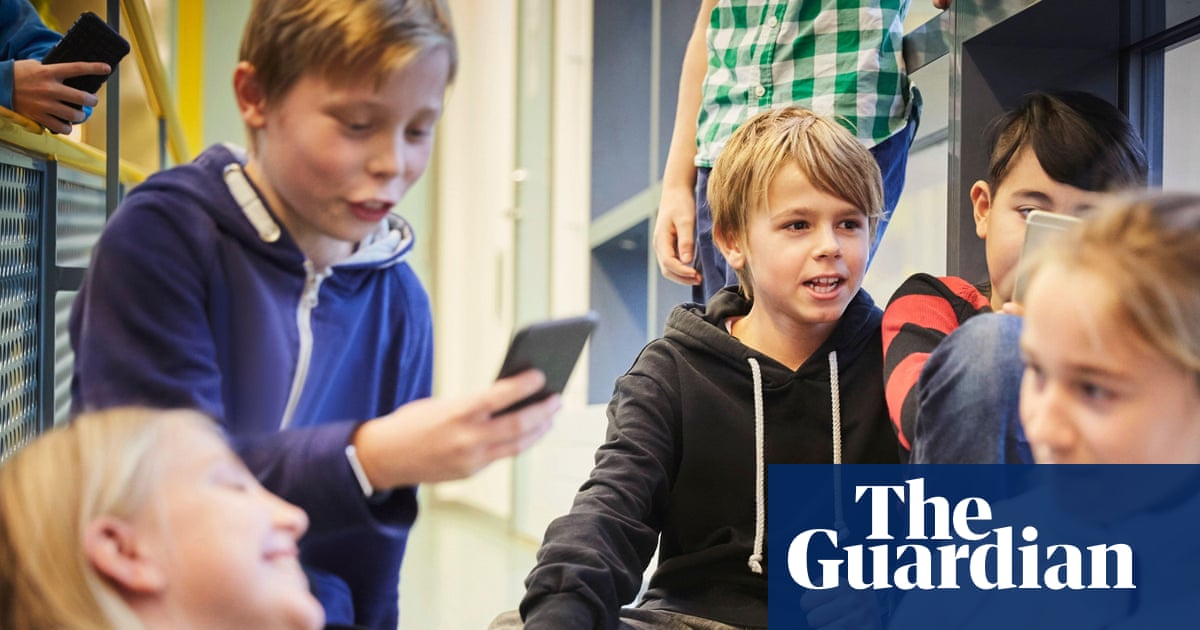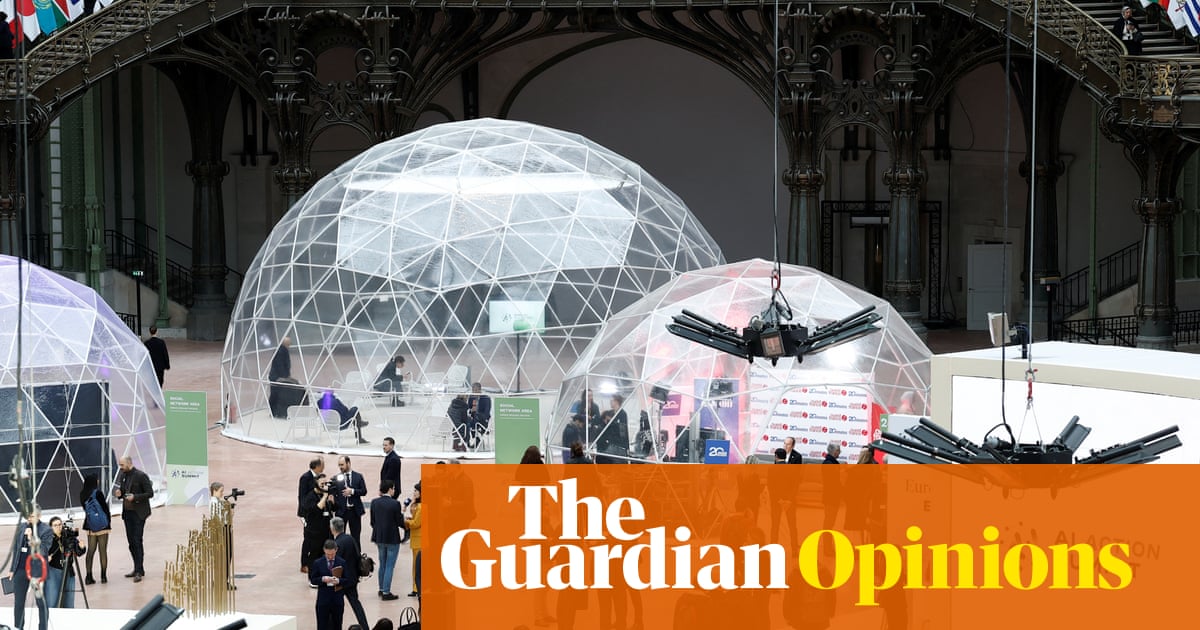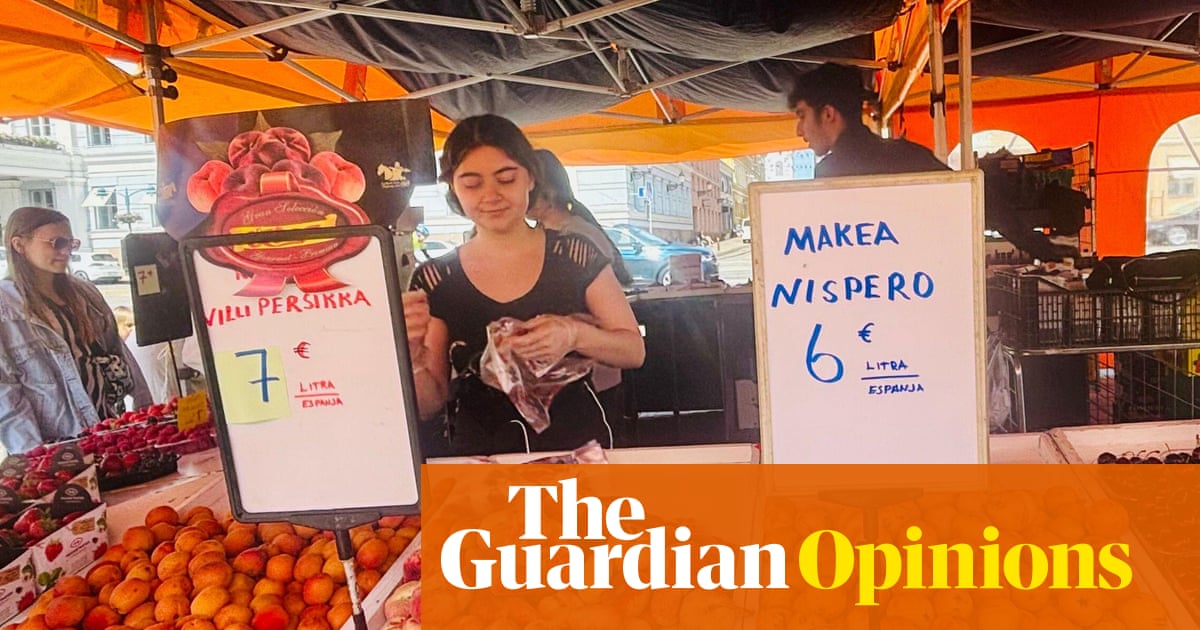There are no words in this startling physical production from Palestinian theatre company, Khashabi. A battered mannequin lies splayed on a bare stage. A huddle of women carry on bodies, gashed, broken-boned and in one case, headless. These are their children, grown-up, lifeless, eternally loved. Sometimes you think their words are coming, in pregnant pauses when they stand before microphones, as if about to speak. Yet no words emerge. The meaning of this becomes apparent: how do you find language to express the maternal anguish featured in the eviscerated space here?
Milk was conceived by Bashar Murkus in 2022 but it could just as well have been made in response to the current killings of Palestinian civilians by Israeli forces – so many of them mothers and children in Gaza. That this production feels so hauntingly relevant to the present moment says something about the circularity of violence for those living under occupation in the region.
But the production is not so much concerned with the politics of conflict as its psychological effect on mothers. The show, directed by Murkus and produced by Khulood Basel, takes us into the realm of the emotional, and eternally repeating, in which these mournful mothers are caught. Lactation is a powerful visual tic, signifying the life-giving force of a mother, as well as the pain and waste of this milk in the face of death. There are moments of joy and fecundity amid the desolation, but the memory of child-loss always returns.
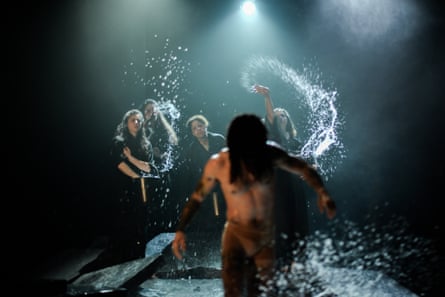
The language of music, movement and visual imagination is deployed with visceral effect. A cast of six women (Salwa Nakkara, Reem Talhami, Shaden Kanboura, Samaa Wakim, Firielle Al Jubeh, Samera Kadry) and one man (Eddie Dow), give extraordinarily physical performances. But most devastating is the stillness that reflects their anguished paralysis and shock.
The grieving takes place in non-chronological time: women give birth to grown men or cradle their adult dead, cooing or kissing them as if they were babies. Majdala Khoury’s set design reflects a generalised catastrophe rather than a specific war. The empty blackness gives the sense of a razed space in which smoke and heaped rubble are conjured in symbolic ways. It is eerily reminiscent of the real-life images of some parts of Gaza, flattened and devoid of life. There is melancholic lighting by Muaz Al Jubeh, and music by Raymond Haddad, which gives the production its plaintive poetry.
Part of the Shubbak festival, numerous searing images resonate: a pregnant woman digging at the rubble, heaped dead bodies and a final, tragic, tableau of the women caught in this catastrophe. It is an appalling register of accumulating and unspeakable pain. There really are no words.

 3 months ago
79
3 months ago
79
